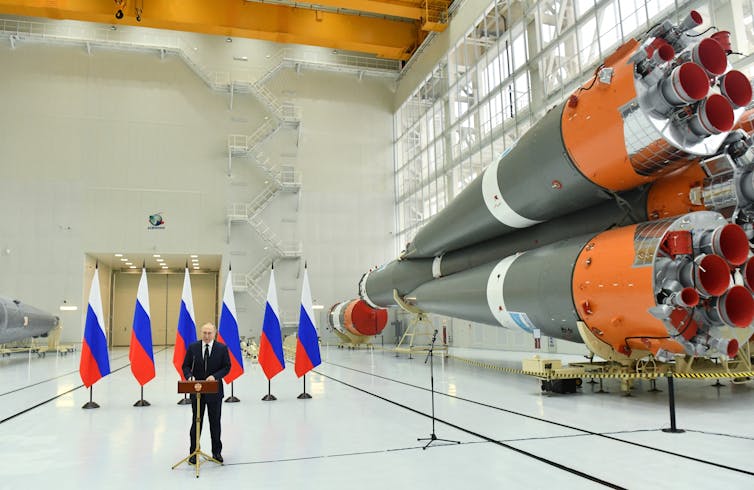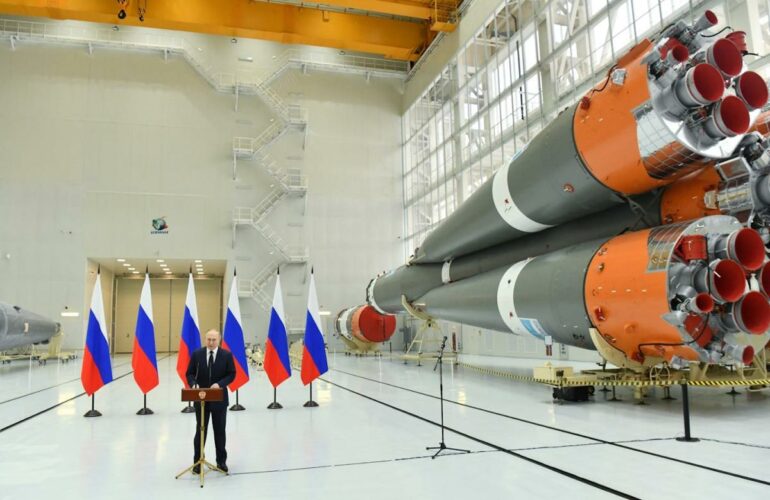Fresh U.S. intelligence circulating in Congress reportedly indicates that Russia is developing an anti-satellite weapon in space with a nuclear component.
News reports speculating about what the weapon could be abounded after Rep. Mike Turner, R-Ohio, chair of the House Intelligence Committee, released a cryptic but alarming statement on Feb. 14, 2024, regarding the information, which he framed as a “serious national security threat.” Some sources suggested a nuclear weapon. Others suspect a weapon that is nuclear-powered but not a nuclear warhead.
The White House confirmed the following day that the Russian system under development is a space-based anti-satellite weapon and that if it were deployed, it would violate the 1967 Outer Space Treaty, which bans weapons of mass destruction in space. The Kremlin responded by dismissing the reports as a “malicious fabrication.”
While the exact weapon remains unknown to the public, the events raise the specter of nuclear weapons in space at a tense time. Relations between the United States and Russia are at their lowest in decades, and Russia is currently waging a war of aggression in Ukraine.
As a scholar of nuclear strategy, I know the U.S. reports come at a time when the nuclear world order is shifting significantly. China and others are expanding and modernizing their arsenals. Iran is close to being able to produce a nuclear weapon. Other countries may eventually want their own nuclear weapons.
At the same time, several countries are developing new weapons to attack targets in space. This list includes Russia, the U.S., China and India, although none currently field weapons in space.
Cold War schemes
The recent revelations about Russian space weapons raise the specter that countries may decide to deploy nuclear weapons in space at some point. Some have tried before.
The U.S. and Soviet Union researched nuclear detonations in space during the Cold War. In the late 1960s, the Soviets tested a missile that could be placed in low Earth orbit and be capable of coming out of orbit and carrying a nuclear warhead to Earth.

Russian President Vladimir Putin delivers a speech during his visit to the Vostochny cosmodrome on April 12, 2022.
Yevgeny Biyatov/Sputnik/AFP via Getty Images
Neither country placed nuclear weapons in space permanently. Both were parties to the Outer Space Treaty and the 1963 Partial Test Ban Treaty, which outlawed nuclear detonations in space. Moscow and Washington negotiated these treaties to contain the Cold War arms race.
These treaties constrained behavior in the late Cold War. However, Russian violations of nuclear arms control treaties, as well as U.S. and Russian withdrawal from various treaties since 2002, suggest they may not in the future.
Nukes in space
But why would a country want space nukes? There are a few reasons.
Countries could point space-based nuclear weapons toward Earth. In theory, weapons from…



